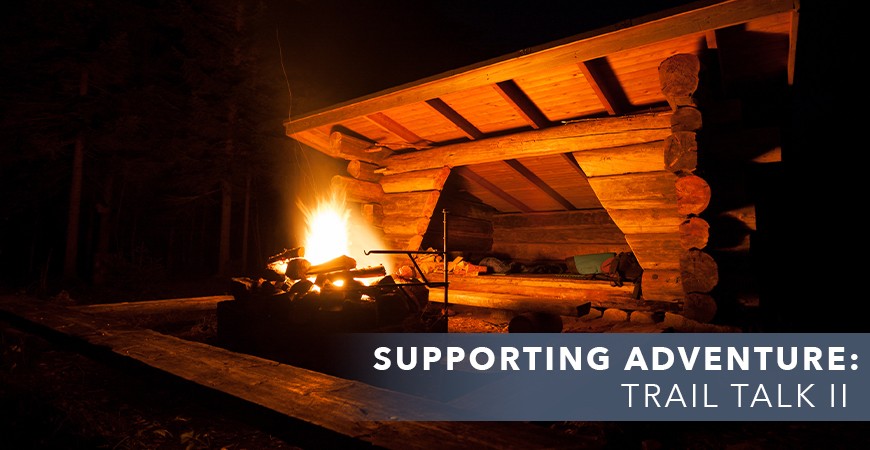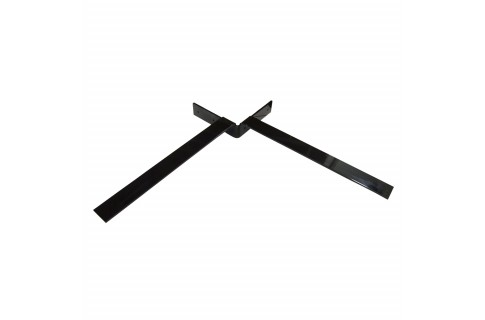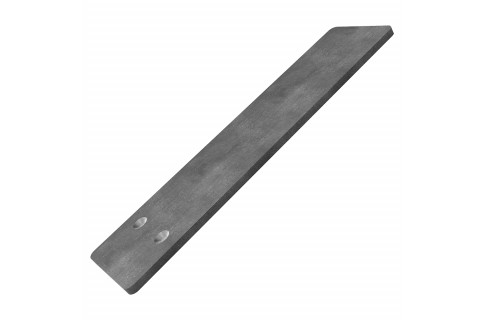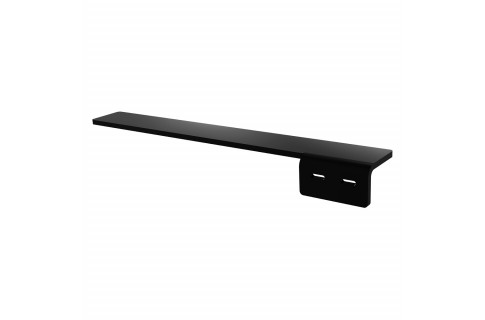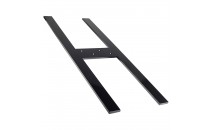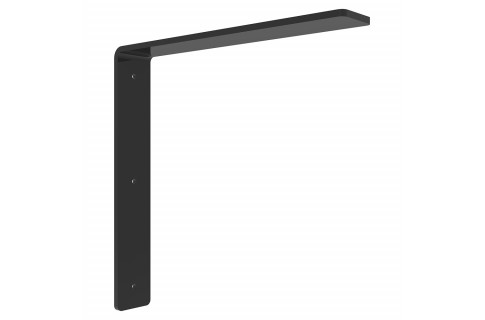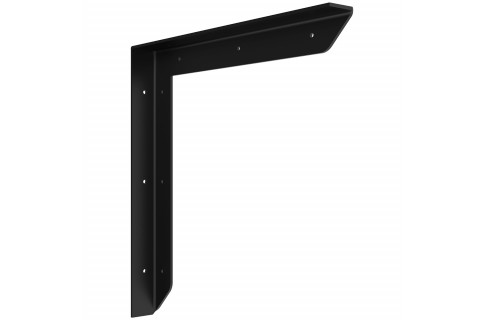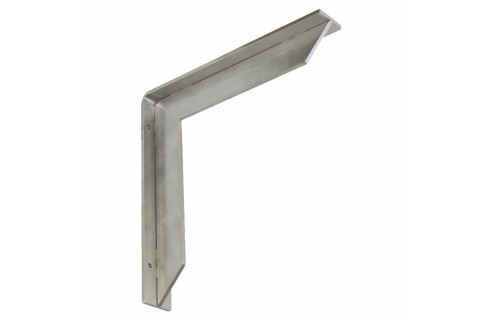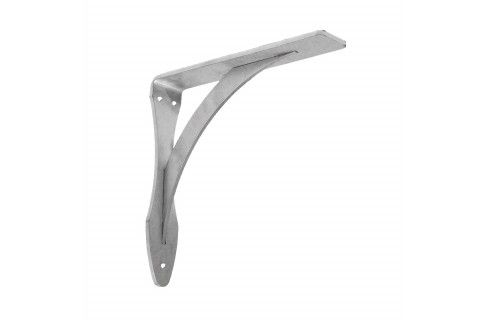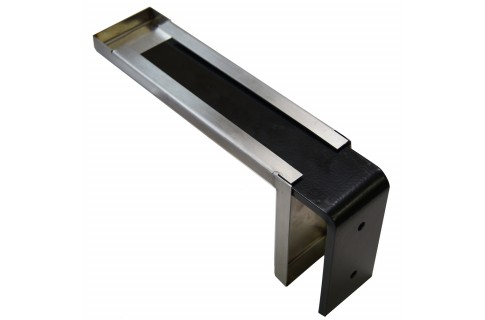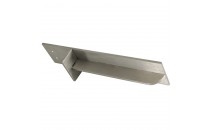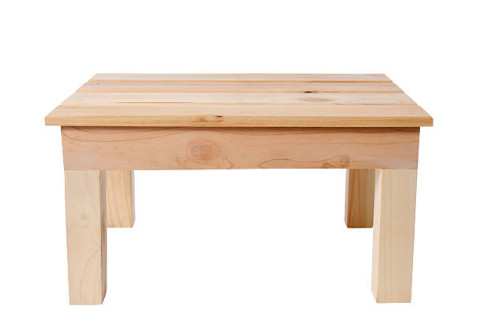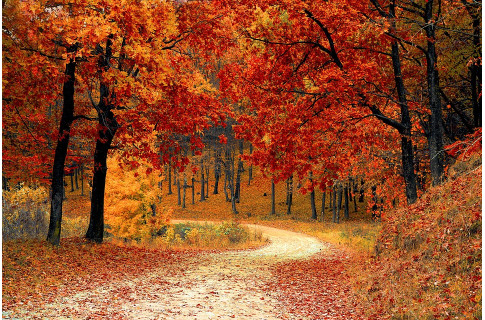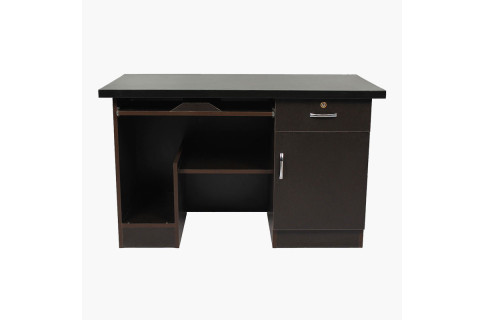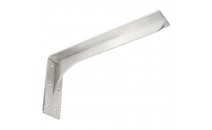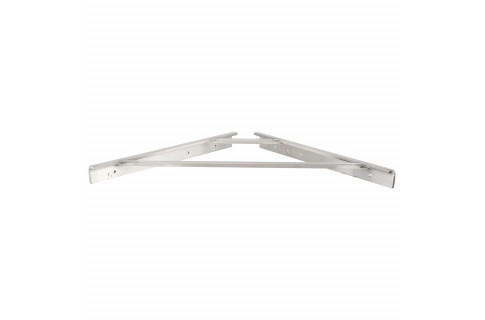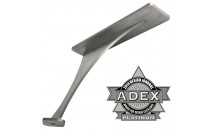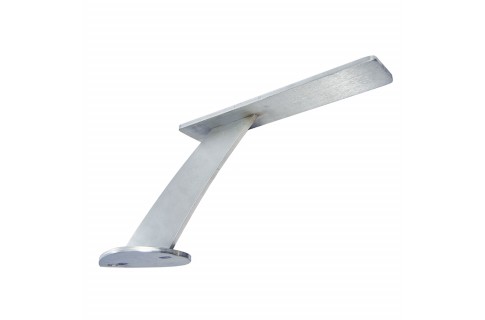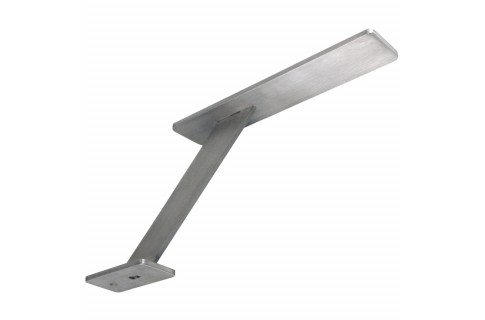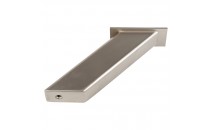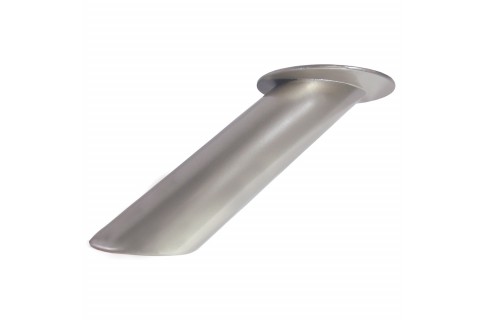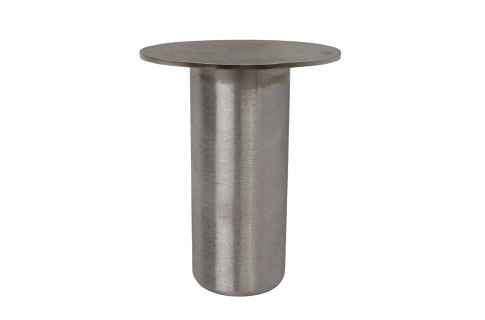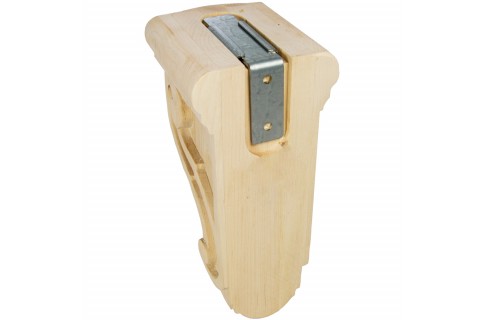Supporting Adventure: Trail Talk II
There is so much more ground to cover! In early March The Appalachian Trail Conservancy (ATC) announced 8 recipients as part of its Community Impact Grant program, distributing a total of $493,100 to help nonprofits promote environmental education, expand outdoor engagement, and support economic viability. These award recipient organizations will utilize the awarded funds to reinforce local conservation and recreational tourism efforts, introduce underserved youth to outdoor recreation and conservation opportunities, and expand educational programs covering the science, history and culture of the Appalachian Trail (A.T.), its surrounding landscapes and Trailside communities.
While the Appalachian Trail continues to improve for generations to come, there has never been a better time to continue to boost your outdoors IQ with our Trail Talk Part II glossary of hiking terms. You asked & we are happy to supply you with the final edition of Hiker Speak! Terms and commonly used abbreviations, lingo, phrases, jargon, slang -- you name it -- used in the long-distance hiking community.
Access Trail – A trail that connects a primary trail to a road, campground, or another trail.
AT – Appalachian Trail.
ATC – The Appalachian Trail Conservancy is a volunteer-based, private, nonprofit organization dedicated to the preservation, management, and promotion of the Appalachian Trail as a primitive setting for outdoor recreation (on foot) and for learning. ATC is both a confederation of Trail-maintaining clubs and an individual-membership organization.
AYCE – 'All You Can Eat' Restaurants that offer all you can eat buffets are very popular with hungry hikers.
Backcountry - Area where there are no maintained roads or permanent buildings, just primitive roads and trails.
Base Weight – The weight of your pack and its contents, not including consumable items (food, water, and fuel).
Bear Bag – A bag used by hikers to hang their food out of reach of bears and other critters, see 'Food Bag.'
Bear Box – Metal containers found at trailheads where bears are active. The idea is to take all food and other smelly stuff out of your car and leave it in the bear box. Boxes use latches, pins and other devices to keep the bears out.
Bear Canister – A portable container used to secure food from bears.
Bear Fortune Cookie – Tent.
Bear Pinatas – A poorly hung bear bag that's sure to be popped open overnight like an ursine party favor.
Big Three – Your backpack, shelter, and sleep system. These are typically the heaviest, most expensive, and most critical categories of items carried, and thus tend to get the most attention during gear discussions.
Bivy Sack – A lightweight and sometimes waterproof bag that covers a sleeping bag.
Bliss Index – A scale that attempts to place a hiker’s state of blissfulness into numerical form; a score of ten is absolute bliss, while a score of one borders on boredom or misery.
Blow-down – A tree or shrub that has fallen across the trail.
Blowout – Epic failure of a portion of your trail running shoes (soles, upper, toe guard), usually resulting in unsightly duct tape repairs and haggard sewing jobs in the field.
Blue Blaze – Spur trails off the AT to bad-weather routes, views, shelters, water sources etc. are often marked by AT-style blazes painted Blue.
Boardwalk – Planking built on piling in areas of wet soil or water to provide dry hiking.
Bog Bridge – Narrow wooden walkway placed to protect sensitive wetlands.
Bollard – Round post barrier, often metal, usually 4' high to prevent vehicles from entering a trail.
Bomber – An item of gear that is extremely durable.
Bonk – Running out of energy to hike due to eating too few calories.
Bonus Miles – Miles walked that are not on the trail, such as miles to and from resupply points or to and from off-trail water sources or non-trail miles walked due to bad navigation.
Bounce Box – A mail-drop type box containing seldom used necessities that is mailed ahead to a town where you think you might need the contents.
Break Trail – In winter, to hike in the lead position, forcing one’s way through fresh snow. Others follow in the footsteps.
BRP – Blue Ridge Parkway.
Buffer Zone – Areas important to, but not part of, the Appalachian trail.
Bushwhack – To hike where there is no marked trail.
Cache (pronounced cash) – A supply of water, food, or supplies hidden for later retrieval.
Cairn – An obviously manmade pile of rocks erected as a trail marker, chiefly used above timberline. Should be close enough to see the next one in heavy fog and high enough to see above fallen snow.
Calorie Loading – Eating as much high fat food as you can during a town stop.
Camel Up – Drink your fill of water at the source until you're filled up then hike on. Also called Tank Up..
Caretaker – The person who maintains and collects fees at certain shelters and campsites.
CDT – Continental Divide Trail.
Cirque – A group of mountains that form a circle.
Class - Usually referred to in terms of technical climbing, for example: Class 1 is a simple mountain that can be climbed wearing a pair of sneakers; little more than a nature loop. Class 2 includes minor handholds, more or less to steady yourself as you clamber up the mountain. Class 3 includes some vertical climbing, and perhaps use of a rope. Class 4 is any climb that requires use of a belay, in which another climber is required to remain stationary to take up slack and arrest the fall of the active climber. Class 5 is any climb that requires ropes to be attached to fixed objects, such as a tree or piton. The attachment is not to aid in ascent, but rather to protect in the event of a fall. Class 5 is the one with the most "variables." A Class 5.0 has two handholds and two footholds. Class 5.4 is missing a hold. Class 5.8 has a hold available for one hand and one foot only. Class 5.12 has no visible holds. Class 5.13 is a surface with no holds and is under an overhang. Class 6 is any climb that requires artificial assistance to be carried out, whether it is ropes dropped from above or other mechanical aids.
Comfort Hiker – A hiker who is in the mindset that the fifty pounds on his/her back make them more comfortable than the twenty pounds on the ultralighter’s back.
Crash Camp – An improvised camp site. When a 22 mile uphill day turns in to too much hiking crash campsites are looked for around mile 19. Too small, not level enough, and hardly ever near water. Crash camps lead to early mornings.
Croo – The crew of caretakers who man the Appalachian Mountain Club Huts. For the most part, the summer Croo will be college students.
Day Hiker – A hiker out for the day that usually carries a small backpack or no pack at all.
Dead Fall – A maintainer's term for fallen dead trees across the trail.
Death March – Unusually long, not very interesting hike. Term often applied when forced to take a dull trail to reach the one you really want to be on.
DIAD – Done In a Day backcountry trips.
Dip ‘N Sip – Cowboy water: Straight from the source, unfiltered. The easiest, laziest means to acquire water in the woods. Usually at high altitudes, well away from cow pastures.
Ditty Bag – Small stuff sack of personal items.
DWR – Durable Water Repellent, a type of fabric coating.
End-to-Ender – An alternative term for 2,000-Miler.
Fastpacking – A term for carrying less gear and hiking more miles per day.
FBC – Freezer Bag Cooking. To cook in a quart size zip-lok freezer bag by simply adding hot water to dehydrated food
Floater – Debris floating in a water source that needs to be filtered out, even if the water quality is such that filtering the water is not otherwise necessary.
Flyer – A box of supplies you mail to yourself, to a location farther up the trail.
Food Bag – A bag a hiker carries in their pack specifically for keeping all their food in. It is typically suspended from a tree at night so bears and varmints don't get into it. Also called Bear Bag.
Freehiking – Hiking off established trails. Unlike "bushwhacking" which is usually done as a short-cut, freehiking intentionally seeks a complete hike experience free of artificial boundaries. Some speedhikers are also free hikers..
FSO – From Skin Out. Total weight of everything worn or carried, including pack and contents, consumables (food, water, fuel), and everything worn or carried in your hands or pockets. When considering the weight of gear, it’s important to remember that your total gear weight 'from skin out' is as important a total as what your pack weighs.
Gaiters – Outerwear that zips or snaps around ankles and lower legs to keep dust, water, snow, muck, or rocks out of your hiking shoes.
GAME or GAMEr – A hike or hiker going from Georgia to Maine.
Gearly Afflicted – A camping enthusiast who knows no boundaries when it comes to owning new equipment.
GORP – Good Ole Raisins & Peanuts, or trail mix.
Gram Weenie – A person obsessed with reducing weight of items worn or carried.
Ground Control – Support that handles the 'real world' concerns like bills and pets, and mails a hiker packages
GSMNP – Great Smoky Mountains National Park.
Happy Camper – One who loves what they are doing.
Headlamp – A small flashlight attached to a band or strap and worn on the head.
Herd Path – An unofficial but obvious route hikers use to get from one place to another. Sometimes refers to an official path that is extremely overused.
Hicker – A person who is still trying to figure out the whole hiker/gear thing while on the trail.
Hiker Box – A cabinet or box at hostels where hikers donate unwanted food for the hikers coming behind them.
Hiker Midnight – 9:00 PM. The time by which thru hikers are usually asleep.
Hiker Tan – A sheen of dirt and mud accumulated from the trail, aka the kind of tan that washes off.
Hiker Widow – A loved one left behind while a thru-hiker walks the trail.
Home Free – Literally, without a home; also: so close to reaching trail's end that you're already there.
Hostel – An establishment along the trail that has bunks, benches, showers, and sometimes cooking and mail drops, for hikers.
Hydration System – A plastic bladder, hose, and mouthpiece/valve that allows hands free drinking.
HYOH – Hike Your Own Hike, and not imitate someone else's.
Lean-to – One- to three-sided structure, usually with a single slanted roof, designed to provide minimal shelter for backpackers. You are likely to find picnic tables here, benches, etc.
Look, The – At some point in the trail a hiker will develop the look. It’s a combination of a lean, muscular body and a look of confidence and determination in the eyes. Those who have the look will probably finish their hikes. Those who don't have the look will probably leave the trail before they finish..
Mail Drop – Mail drops are a method of resupply while hiking. A mail drop is usually arranged ahead of time, before the hike starts, and a person not hiking (usually a spouse, relative, or friend) mails the package according to a pre-arranged schedule so that it arrives on time for the hiker to receive it at the post office.
Maintainer – A volunteer who participates in the organized trail maintenance programs of the ATC and its member clubs.
MEGA or ME-GA – A hike or hiker going from Maine to Georgia.
Mid – Referring to a pyramidal-style shelter pitched with one or two poles.
Misery Index – A scale that attempts to place a hiker’s state of suffering and misery into numerical form; a score of ten is absolute misery, while a score of one borders on blissfulness.
MUDs – Mindless Up and Downs. Where the trail goes up and back down several times for no reason other than the amusement of whoever laid out the trail.
MYTH – Multi-Year Thru Hike. A hike of the entire trail over several summers.
Nero – Almost a Zero ...in other words, a very short mileage day.
Nesting – When a kit fits nicely together, as in a stove nesting inside a cook pot.
NoBo – Northbound thru-hiker, also a GAMEr (Georgia to Maine on AT, Mexico to Canada on PCT).
NPS – National Park Service.
Pack Weight – Weight of your pack and its contents, including consumables (food, water, and fuel).
Philosopher's Guide – The original guide for thru-hiking the AT, first a few sheets of info passed around in hiking circles, later a book published by the ATC.
Point –Lead person in a line of hikers. Responsible for following the trail.
Pot Cozy – An insulation wrap to keep the contents of a cooking pot warm once off the stove.
Power Hiker – A hiker who habitually chooses to cover very long distances each day, often hiking late into the evening.
Prescribed Burn – Intentional fires conducted by forestry services to clear underbrush and eliminate some of the fuel for potentially larger unintentional fires. These used to be called "controlled burns" but since they seldom are, the name was changed.
PUDs – Pointless Ups and Downs. Where the trail goes up and back down for no reason other than the amusement of whoever laid out the trail. Several PUDs in a row are MUDs, which is short for Mindless Ups and Downs.
Puncheon (also called a Bog Bridge or Boardwalk) – A wooden walkway built to provide a stable, hardened tread-way across bogs, mud flats, and marshy areas.
Rainbow Blazer – Term used by thru-hikers to describe people who hook together all sorts of routes to complete a trail, including hitchhiking.
Register – A log book normally found at a trail shelter or a trail head. The original intent was for hikers to sign in so a searcher needing to find a lost hiker could tell where they last were.
Repeat Offender – A person who has hiked the same long distance trail more than once.
Ridge Runner – A person paid by a trail-maintaining club or governmental organization to hike back and forth along a certain section of trail to educate hikers, enforce regulations, monitor trail and campsite use, and sometimes performs trail maintenance or construction duties. Such persons are most often found in high-use areas of the trail.
Ruck – Originally small informal gatherings of past and future AT hikers, they have evolved into larger annual scheduled events.
Shelter – A three sided wooden or stone building paced out a half day's hike apart, near a water source, complete with benches, etc.
Single Track – A narrow section of trail just wide enough for one person.
Social Trails – Unofficial shortcuts that connect individual sites to each other, restrooms, etc. at campgrounds..
Springer Fever – The almost uncontrollable urge to be back on the Trail that hits thru-hikers of past years each spring.
Stealth Camp – A manner of camping where there is no indication that you are there, and no trace of your being there is left when you've left.
Stick Snake – Those pesky sticks that jump up and bite you on the leg when you step on it.
Stump Bear – An old tree stump of the trail that on first glimpse looks like a bear.
Sweep – Last hiker in a group by design. Person follows all others, ensuring that no one falls behind or is left needing assistance.
Switchback – A method of building a trail that forms a zig-zag of trails up a mountain. The strategy is to make the climb easier and prevent erosion.
Tank Up –Drink your fill of water at the source until you're filled up then hike on. Also called Camel Up.
Three Season – Gear that is intended for Spring, Summer, and Fall, not having enough insulation to safely camp in Winter weather.
Topo – Topographical Map.
Trail Angel – Someone who provides unexpected help, food, or water to a hiker.
Trail Gorilla – A person who helps maintain the PCT with sweat equity.
Trail Legs – Legs that have a lot of stamina. Once you start averaging above 20 miles per day, you know you got your trail legs on.
Trail Name – A nickname adopted by or given to a hiker.
Trail Spice – The unavoidable bits of leaves, twigs, and dirt that end up in trail food from dropping or otherwise.
Trail Town – Towns that are very close to the trail and are popular resupply and rest stops because they have what hikers need and/or are especially friendly to hikers.
Traverse – To climb a slope diagonally rather than a more direct approach.
Trustafarian – An 18 to 50 year-old child who's never worked a day in his/her life; found often on National Scenic Trails.
Understory – Forest vegetation growing under the canopy.
USGS – United States Geological Survey. These are the folks who've measured and mapped everything, and make those cool topo maps.
Weekender – A hiker that is on the trail for 1-4 nights. Also called a Weekend Warrior.
Widowmaker – Limbs or whole trees themselves that have partially fallen but remain hung up overhead and so pose a danger to a person below.
Wilderness Area – Public lands set aside to be protected from humans.
YMMV – Your Mileage May Vary. Hiker jargon for 'this worked for me, but your results/opinions might not be the same.
All this Treehugger Trail Talk has us looking to relax. Pop-a-squat with Federal Brace! Our curated collection of innovative bench brackets feature maximum design inspiration + heavy carrying abilities, including the Savona Commercial Bench Bracket now available in a NEW Black Finish! Check out FederalBrace.com or call toll-free (877) 353-8899, 8:30 AM - 5 PM EST for additional ideas and design assistance. We fully support your adventures!
